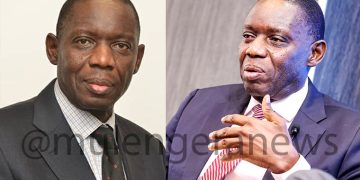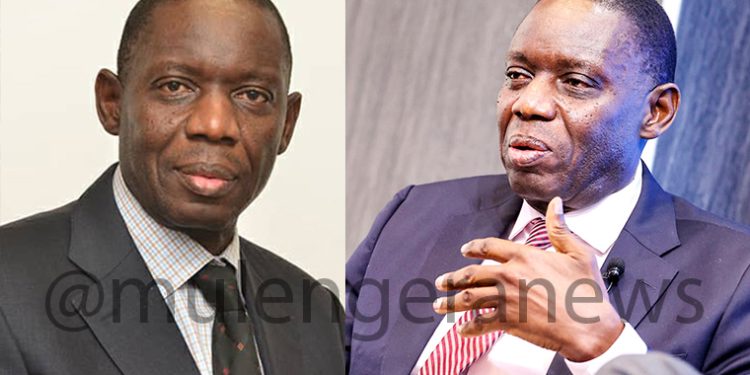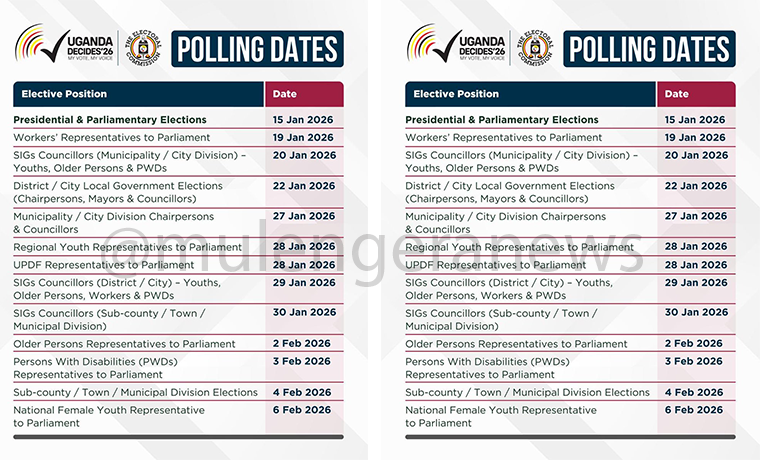By Aggrey Baba
Uganda’s financial landscape has witnessed significant changes in recent years, with the Bank of Uganda (BOU) playing a central role in maintaining economic stability.
At the helm of these efforts is Governor Michael Atingi-Ego, whose leadership is marked by strategic interventions that have helped navigate both global and local economic challenges.
Atingi-Ego’s journey to becoming the Governor of the Bank of Uganda began with a solid academic foundation. Holding a Ph.D. in Economics from Liverpool University, he joined the BOU in 1984, where he quickly rose through the ranks.
His leadership as Deputy Governor from 2020 and Acting Governor in 2022 set the stage for his formal appointment in December, 2024. Atingi-Ego’s extensive experience in macroeconomics and financial management has proven invaluable in steering the country’s financial systems.
One of his most notable achievements during his tenure has been his effective management of inflation. In 2024, inflation rates in Uganda saw a significant decline, dropping to 3.3% from 5.4% in 2023, according to the Uganda Bureau of Statistics.
This reduction is a direct result of the BOU’s policy interventions, which have helped to stabilize prices and preserve the purchasing power of the Ugandan shilling. Atingi-Ego’s focus on price stability is aligned with his belief that maintaining a predictable economic environment is essential for long-term growth.
Inflation rates directly impact investment decisions, economic activity, and consumer confidence, making it a crucial area of focus for the central bank.
Under Atingi-Ego’s leadership, BOU has introduced several measures aimed at strengthening Uganda’s foreign exchange reserves. This includes initiatives like foreign exchange swaps, cross-border exports, and foreign direct investments (FDI). These efforts have enhanced Uganda’s foreign currency liquidity, bolstering the country’s competitiveness in the global market.
In addition to this, Atingi-Ego has overseen the integration of Environmental, Social, and Governance (ESG) principles into the financial operations of BOU and other financial institutions. This is part of the bank’s 2022/2027 strategic plan, which aims to build a more sustainable and resilient financial system.
The performance of Uganda’s financial sector has been another area of focus for Atingi-Ego. In the year leading up to June 2024, supervised financial institutions (SFIs) showed strong growth. Total assets in the banking sector rose by 8.4%, driven largely by increased government securities, loans, and deposits.
However, credit institutions faced a decline due to the closure of Mercantile Credit Bank in 2023. Despite challenges in the sector, Atingi-Ego has emphasized the importance of maintaining liquidity and strong capital buffers.
The BOU’s regulatory policies have been instrumental in ensuring that banks are well-equipped to handle economic shocks and continue to support private sector growth.
His leadership has also been shaped by external factors such as geopolitical conflicts, climate change, and the global economic slowdown.
At a recent conference of central bank governors, the governor highlighted how climate change-induced volatility is becoming a structural feature of Uganda’s economic landscape.
The frequency of extreme weather events, combined with disruptions to agricultural productivity, poses a significant risk to price stability, especially in a country where food makes up a large portion of the consumer price index. Additionally, the global transition to a low-carbon economy presents new challenges for financial institutions.
Atingi-Ego has been proactive in addressing these issues, ensuring that BOU’s monetary policies are flexible enough to factor in these emerging risks.
Cybersecurity risks have also become a growing concern for Uganda’s financial sector. With the increased use of technology, the sector has seen a rise in cyber fraud, particularly related to payment systems.
In response, BOU, under Atingi-Ego’s guidance, has introduced stricter guidelines to protect the integrity of the financial sector and mitigate the risks posed by fraud.
Despite these challenges, Uganda’s economy has shown resilience. Exports, excluding gold, rose by 7.9% to over $5 billion, driven largely by coffee, cocoa, and sugar.
The country also saw a steady inflow of foreign direct investment (FDI), reaching $3.3 billion in the 12 months to October 2024. His leadership in managing Uganda’s foreign exchange and fostering a conducive environment for investment has contributed significantly to these positive developments.
As Uganda continues to face both local and global challenges, Atingi-Ego’s leadership remains crucial in guiding the country’s economic policy. His focus on stability, growth, and sustainability positions Uganda’s financial system well for future challenges.
With ongoing reforms and a clear vision for the future, Ego and the Bank of Uganda will continue to play a key role in shaping the nation’s economic trajectory.
Through a combination of sound monetary policy, strategic financial interventions, and a focus on long-term sustainability, Governor Michael Atingi-Ego is leading Uganda towards a more stable and prosperous economic future. His leadership provides hope that even in the face of global uncertainties, Uganda can continue to grow and thrive. (For comments on this story, get back to us on 0705579994 [WhatsApp line], 0779411734 & 041 4674611 or email us at mulengeranews@gmail.com).
































